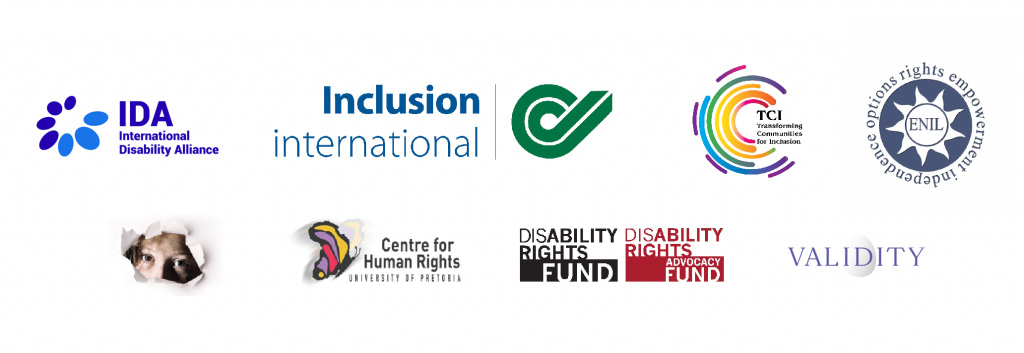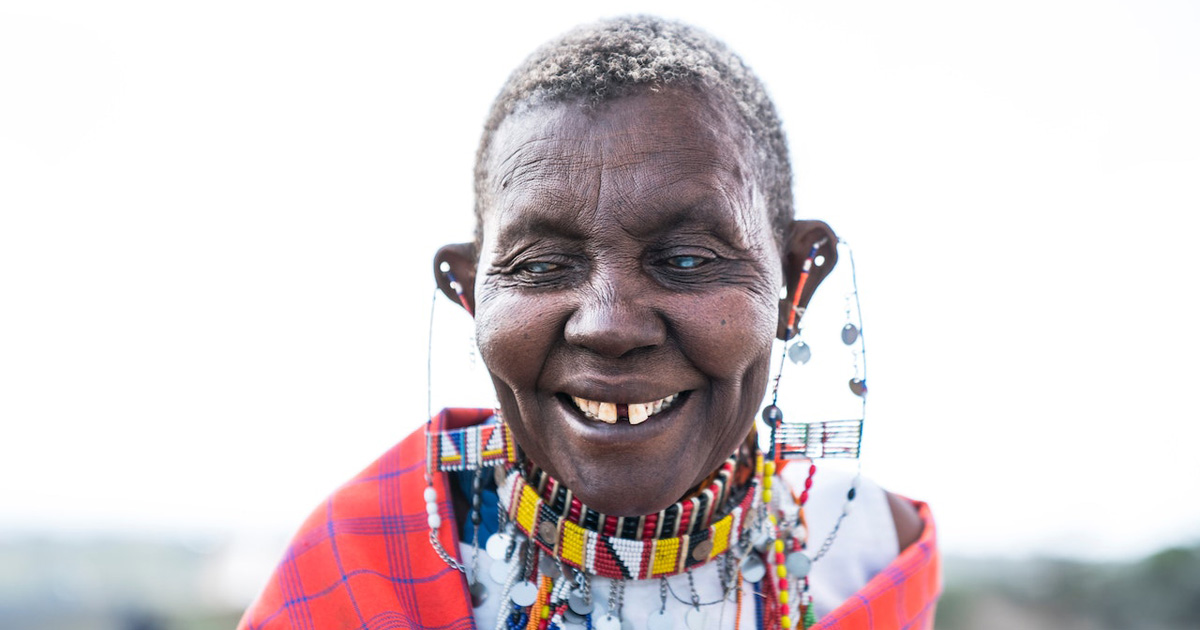The Global Coalition on Deinstitutionalization (‘GC-DI’) calls on all bodies and agencies of the UN to support the implementation of the UN Guidelines on Deinstitutionalization, including in Emergencies (‘the Guidelines’). We further call on States parties and regional integration organizations to align reform processes with the authoritative guidance being provided to them by the adoption of the Guidelines. We urge all stakeholders to ensure that deinstitutionalization processes conform to the letter and spirit of the Convention, and prioritise the leadership of persons with disabilities.
In October 2020, the COVID-19 Disability Rights Monitor released its report entitled Disability Rights during the Pandemic: A global report on findings of the COVID-19 Disability Rights Monitor (‘COVID-19 DRM’) on the experiences of persons with disabilities and the consequences of government actions and inactions on the rights of persons with disabilities. The report revealed the egregious failure to protect lives of people in residential institutions, which had become Petri dishes of the virus during the pandemic. Instead of prioritising emergency measures to reintegrate people into the community, many institutions were locked down, with fatal consequences. Though the COVID-19 Disability Rights Monitor ended its data collections, the findings of the report remain relevant.
Responding to the recommendations of the COVID-19 DRM, during its 23rd session (17 August to 4 September 2020), the United Nations Committee on the Rights of Persons with Disabilities decided to establish a Working Group on the Deinstitutionalization of Persons with Disabilities to develop Guidelines to supplement the Committee’s General Comment No. 5. The aim of the Committee was to provide concrete guidance to State parties and other actors on how to carry out deinstitutionalization processes, including in emergency situations, in line with the CRPD. The process of preparing the Guidelines began in late 2020.
In June 2021, eight of the leading international organizations of persons with disabilities and civil society organisations formed the Global Coalition on Deinstitutionalization (GC-DI) to support persons with disabilities worldwide to participate in the process of developing the Guidelines on Deinstitutionalization.
Members of the GC-DI provided support for seven regional consultations organised by the Committee in early 2021. In these consultations, more than 500 women with disabilities, children and older persons with disabilities, survivors of institutionalisation, persons with albinism, grassroots and self-advocacy organizations, and other civil society organisations presented testimonies, experiences, and proposals.
In September 2021, on the basis of input received, the CRPD Committee adopted an annotated outline of its Guidelines on Deinstitutionalization. The GC-DI, together with consultants and external reviewers, continued supporting the unique process.
On 20 May 2022, the Committee on the Rights of Persons with Disabilities published the “Draft Guidelines on Deinstitutionalisation, including in Emergencies” and launched the process of public consultation. In a bid to ensure broad participation of persons with disabilities and their organisations, including people living in institutions and survivors of institutionalization in the process of the public consultation, GC-DI members translated the draft Guidelines into English Easy-to-read, Bulgarian, French, Hungarian, Romanian, Spanish, Slovak, Japanese, Hindi and Slovenian, and widely distributed it among different stakeholders. We organized webinars in Europe, Latin America, Asia, and Africa to explain the background of the Draft Guidelines, their purpose and key elements. Respondents highlighted, for instance:
“Institutional trauma needs to be addressed.“ (Survivor of institutionalization, Romania)
“States parties should map the workforce, including demographic and employment trends, and the impact these may have on deinstitutionalization. (…) States parties should ensure that services are sufficiently and adequately staffed to respond to the needs and wishes of persons with disabilities.” (Survivor of institutionalization, Zambia)
“A key part of institutional closure is the stopping of placing people in institutions. We suggest to have a separate section in the guidelines about preventative community-based support, including outreach support to people with psycho-social disabilities.” (Organization of Persons with Disabilities)
During its 27th session (15 August–9 September 2022), the Committee adopted the Guidelines on deinstitutionalization, including in emergencies.
“Despite worldwide ratification of the UNCRPD and the adoption of the General Comment 5, we are still witnessing the building of new institutions. Many times, these institutions are falsely presented as ‘independent’ or ‘community living’. The new Guidelines should help make sure that states, service providers and others stop hijacking our terminology to continue keeping disabled people in institutions. We need real deinstitutionalisation and at ENIL, we welcome a document that explains so clearly what it is we are fighting for.” (Nadia Hadad, Co-Chair, European Network on Independent Living)
“Transforming Communities for Inclusion of persons with psychosocial disabilities (TCI) recalls with respect and gratitude, the tireless work over eight decades of our leaders in the user survivor movements worldwide; and is honoured to have been a part of this effort, in partnering with the GC-DI, to jointly create a ‘De-colonizing Cleanse’: the ‘Guidelines on de-institutionalization, including during emergencies’. The CRPD continues to inspire TCI with its vision for inclusive communities, where persons with psychosocial and neurodiverse disabilities, ‘mad’ persons and users and survivors of psychiatry can continue to live uninterrupted lives in natural communities, with access to support networks, systems and services. The Guidelines will be our reference point for global advocacy, going forwards.” (Bhargavi Davar, Executive Director, Transforming Communities for Inclusion)
“The adoption of the guidelines is the beginning of a new journey for OPDs working on Deinstitutionalization and community inclusion. The next step is as important: translating the guidelines into practical step-by-step guidance adapted to each country’s context and situation. Organisations of people with disabilities, including survivors of institutions, have an important role in making the guidelines a reality in their countries. Deinstitutionalisation and community living cannot be achieved without the involvement and the effective participation of people with intellectual disabilities and their families in this process.” (Connie Laurin-Bowie, Executive Director, Inclusion International)
“IDA, as part of the Global Coalition on Deinstitutionalisation, would like to congratulate the Committee and celebrate the adoption of the “Guidelines on De-institutionalization, including in emergencies.” It has been a highly participatory and collaborative process with the superb leadership of the Working Group on Deinstitutionalization of the Committee.” (Jarrod Clyne, Human Rights Advisor, International Disability Alliance)
“The UN Convention on the Rights of Persons with Disabilities guarantees the right of all persons with disabilities to live in society. In adopting the guidelines, the UN recognizes that institutionalization is not just a form of discrimination in violation of the CRPD– but a form of violence itself that exposes children and adults to dangerous treatment and abuse. The Guidelines will especially help us fight for the protection of children in war zones like Ukraine. It is not OK to wait until after a war or public health emergency to reunite children with their families. All children and people with disabilities deserve – and have the right – to live with families and in the community.” (Eric Rosenthal, Executive Director, Disability Rights International)
“The recent adoption by the Committee of the guidelines on deinstitutionalization is testament that the Convention on the Rights of Persons with Disabilities is a living document. Through pandemics and emergency situations, it lives. To remedy past injustices, shine light on the lives of persons with disabilities, and reconstruct for future generations, it lives. It has been an unmatched honor for the Centre for Human Rights to participate in the process leading up to the adoption of the guidelines. More importantly, the Centre for Human Rights recognizes what a momentous occasion this is for the African continent and looks forward to bringing to life the aspirations contained in the guidelines.” (Auma MI Dinymoi, Researcher, Disability Rights Unit-Centre for Human Rights)
“DRF welcomes the adoption of the Guidelines on Deinstitutionalization and celebrates the Committee’s open and participatory process, as well as its collaboration with the Global Coalition on Deinstitutionalization (GC-DI). The Guidelines promote the right of persons with disabilities to live in the community and give key guidance on emergency deinstitutionalization, including during armed conflict. We look forward to contributing to their implementation and upholding the participation of persons with disabilities in decision-making in all stages of DI processes.” (Catalina Devandas, Executive Director, Disability Rights Fund)
“To Validity’s best knowledge, the preparation process of the Guidelines was unprecedented and unique within the United Nations. We are proud to have been part of this process. Now, we need to work to ensure that this human rights document does not remain a piece of paper but can generate real changes in the lives of persons with disabilities, especially those living in institutions.” (Sándor Gurbai, Impact Manager, Validity Foundation)
Over the coming months, the Global Coalition on Deinstitutionalization will support the unofficial translation of the Guidelines into non-UN languages, and we are committed to preparing an accessible version for persons with intellectual disabilities too.
For updates, including information about dissemination events, please check the website of the GC-DI.
Global Coalition on Deinstitutionalization



